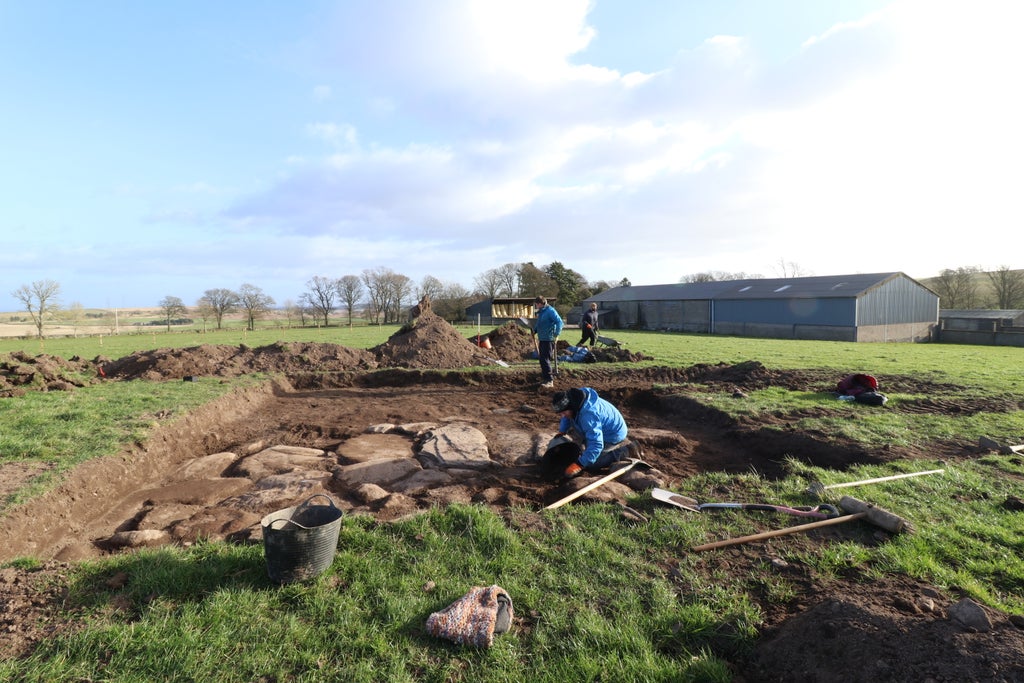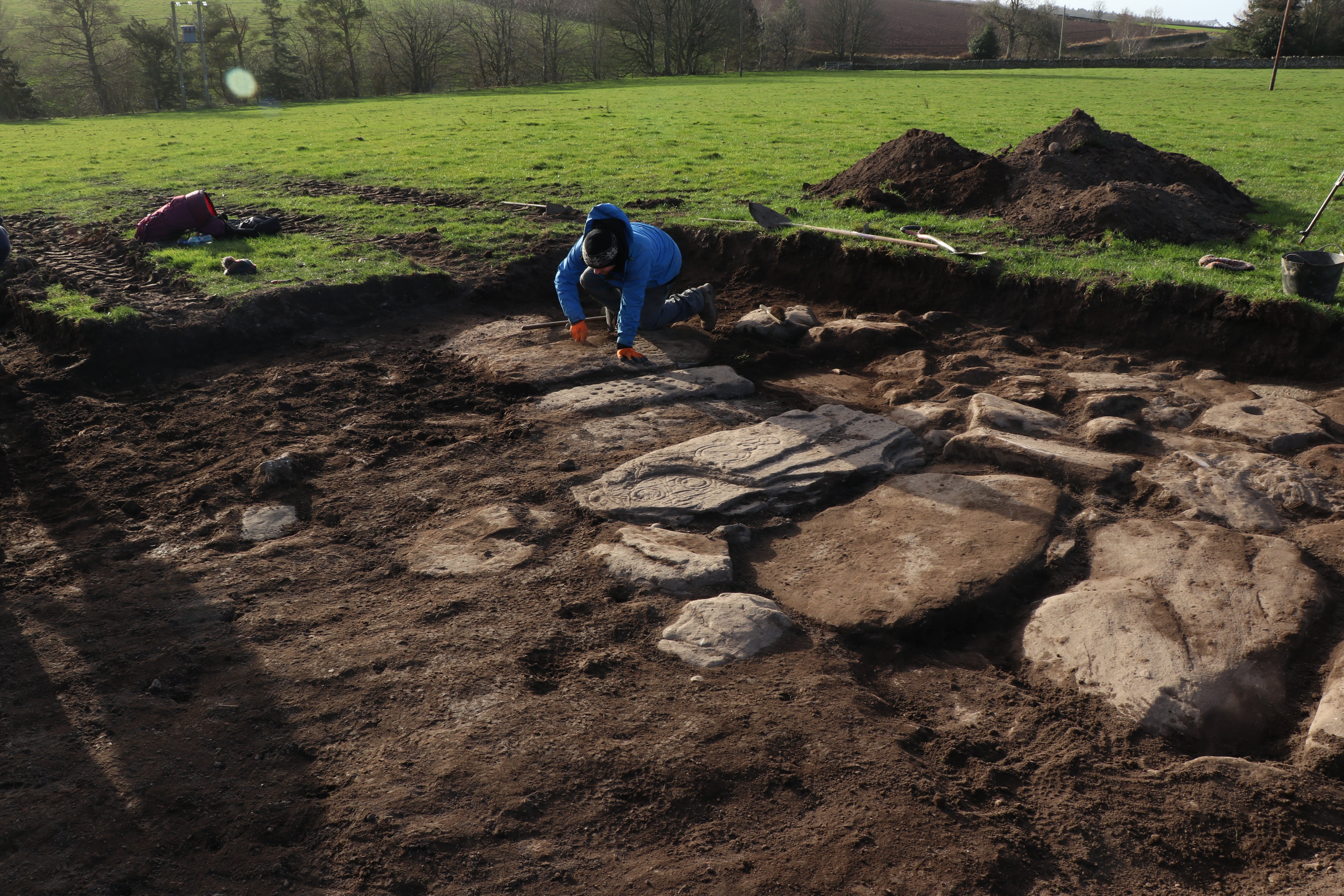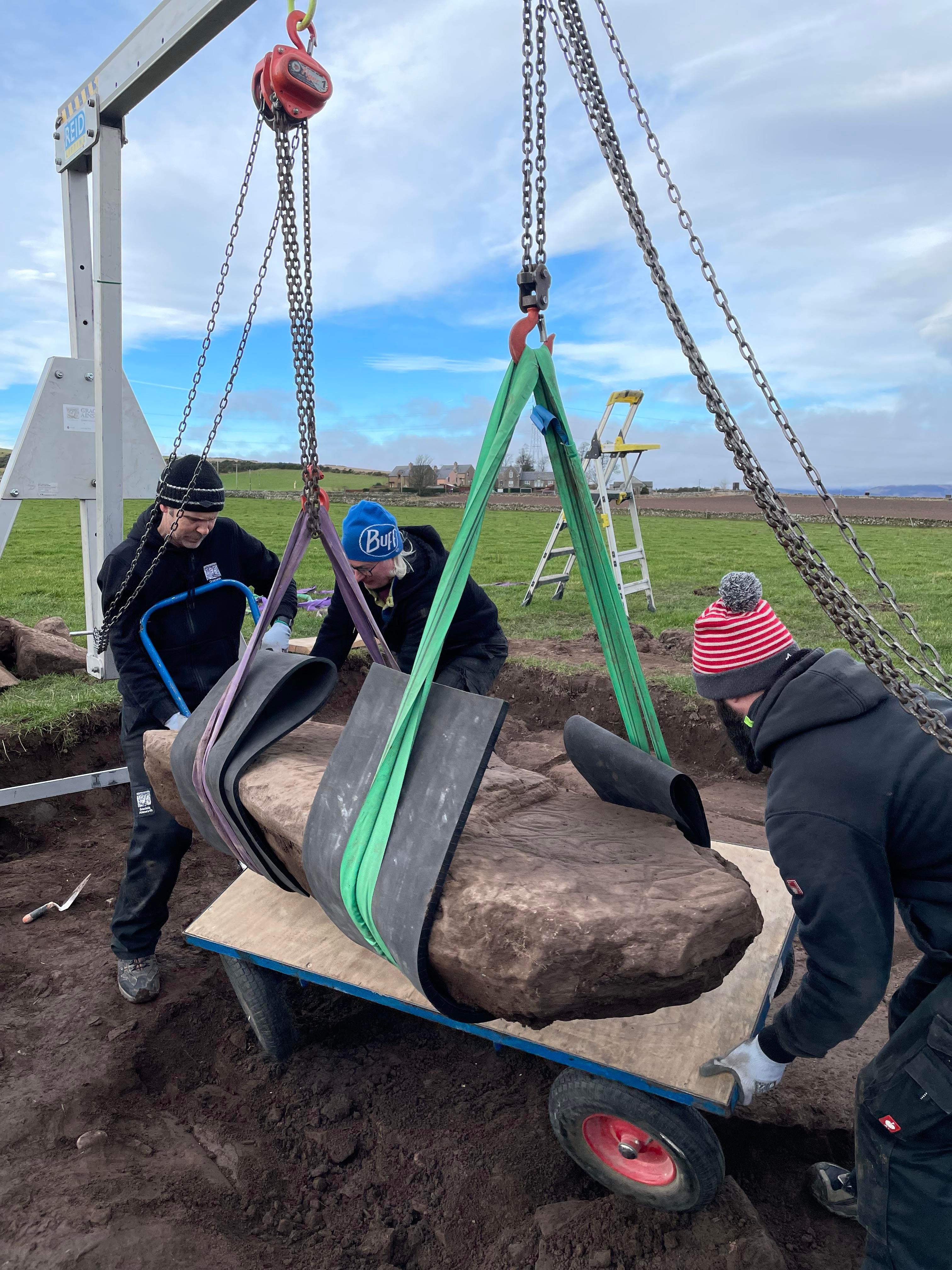
Archaeologists struck lucky after they unearthed a rare Pictish symbol stone near to the location of the most significant carved stone monuments ever discovered in Scotland.
The 1.7 metre-long stone was found in a farmer’s field by a team from the University of Aberdeen while they were were carrying out surveys to try to build a greater understanding of the important Pictish landscape of Aberlemno, near Forfar.
Professor Gordon Noble, who leads the Comparative Kingship project, said stumbling upon a stone as part of a test dig was very unusual.

“To come across something like this while digging one small test pit is absolutely remarkable and none of us could quite believe our luck,” he said.
“There are only around 200 of these monuments known. They are occasionally dug up by farmers ploughing fields or during the course of road building but by the time we get to analyse them, much of what surrounds them has already been disturbed.”
Aberlemno is already well known for its Pictish heritage thanks to its collection of unique Pictish standing stones, the most famous of which is a cross-slab thought to depict scenes from a battle of vital importance to the creation of what would become Scotland – the Battle of Nechtansmere.

The archaeologists were conducting geophysical surveys of the ground early in 2020 in an effort to better understand the history of the existing stones as part of the Leverhulme Trust-funded project.
It was when they used imaging equipment over the earth they found anomalies which looked like evidence of a settlement.
A test pit was dug to try to work out whether the remains of any buildings might be present when, to their surprise, the archaeologists went straight down onto a carved Pictish symbol stone.
It’s a feeling that I’ll probably never have again on an archaeological site. It’s a find of that scale
James O’Driscoll, the research fellow who initially discovered the stone, described the moment the rare object was unearthed.
“We thought we’d just uncover a little bit more before we headed off for the day. We suddenly saw a symbol. There was lots of screaming. Then we found more symbols and there was more screaming and a little bit of crying,” he said.
“It’s a feeling that I’ll probably never have again on an archaeological site. It’s a find of that scale.”
Because of various coronavirus lockdowns attempts to learn more about the object and settlement were hindered but the team now think the stone dates to around the fifth or sixth century and, over the last few weeks, they have painstakingly excavated part of the settlement and removed it from its resting place – finding out more about the stone and its setting.
Like the other stones at Aberlemno, the new discovery appears to be intricately carved with evidence of classic abstract Pictish symbols including triple ovals, a comb and mirror, a crescent and V rod and double discs. Unusually the stone appears to show different periods of carving with symbols overlying one another.
The stone has now been moved to Graciela Ainsworth conservation department in Edinburgh where more detailed analysis will take place.







